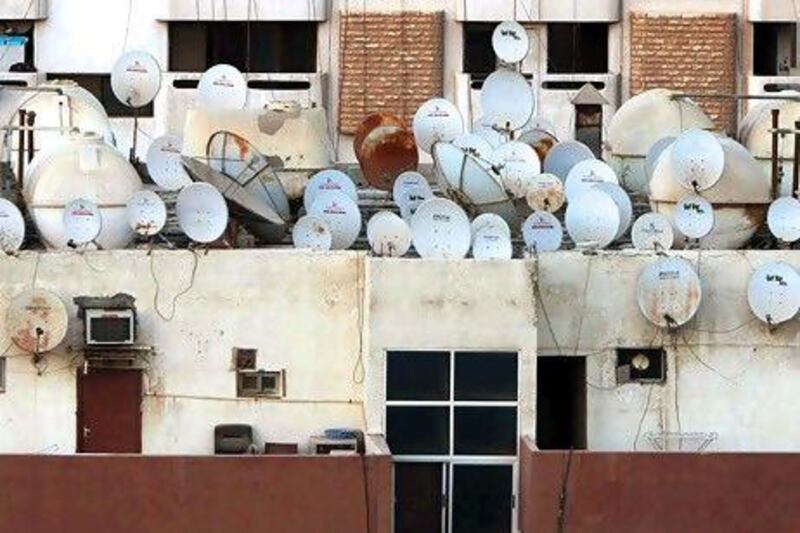The growth of pay-TV subscriptions in the Arab world is being held back by widespread piracy, which costs the industry an estimated US$500 million (Dh1.83 billion) a year.
Of all Arab households that have television service, just 8 per cent pay to receive broadcasts, in a market dominated by free-to-air channels such as those operated by MBC, according to the research company Informa Telecoms & Media.
The proportion of paying households is expected to grow - but to just 10 per cent by 2016, translating to just 5.3 million pay-TV subscribers, according to Informa.
"We don't expect a stellar rise in pay-TV. It is a slow, steady growth," said Nick Thomas, a principal analyst at Informa.
Al Jazeera, which holds regional broadcast rights to the Fifa World Cup among other sports tournaments, is said by Informa to remain the largest pay-TV operator in the region, with 1.85 million subscribers forecast for 2016.
The OSN network, based in Dubai, has 552,000 subscribers, and this is forecast to grow to 995,000 by 2016, according to Informa.
Pay-TV subscription is "very uneven" in the region, Mr Thomas said.
"We see really high penetration of pay-TV in Qatar and the UAE," he said. "And right at the bottom we can see many countries where it really is a niche product and will remain so for the foreseeable future."
One factor impeding the economic growth of pay-TV is endemic piracy in the region, experts say.
"Tackling piracy is important. And the lack of clear legislation in some territories is a hindrance," Mr Thomas said.
Ali Ajouz, a media consultant based in the UAE, said the Arab pay-TV industry loses up to $500m a year because of people paying to receive cheaper, pirated access to broadcasts.
"In Lebanon [there] is 99.9 per cent piracy … $123m is paid to pirate operators every year. So that's $123m that the pay-TV owners don't see, the rights owners don't see," Mr Ajouz said.
"Egypt is estimated to have around 10 million households receiving illegal cable," he said. "I'd say around $500m today are not being recognised due to piracy."
Steps have been taken to address the problem of piracy. OSN recently secured its network with an anti-piracy system, which means that only legitimate subscribers can receive its channels.
But Scott Butler, the head of the Arabian Anti-Piracy Alliance (AAA) in Dubai, said the TV industry faced a wide range of piracy threats.
These include the illegal sharing of decoder boxes, sales of counterfeit DVDs and illegal downloading of films and TV series. "The TV industry is attacked in so many different ways, it's unbelievable," Mr Butler said.
He said the AAA had helped the authorities conduct raids against those accessing TV channels illegally.
However, he added that the reluctance of authorities to hand down prison sentences in markets such as Saudi Arabia was a barrier to stemming piracy.





